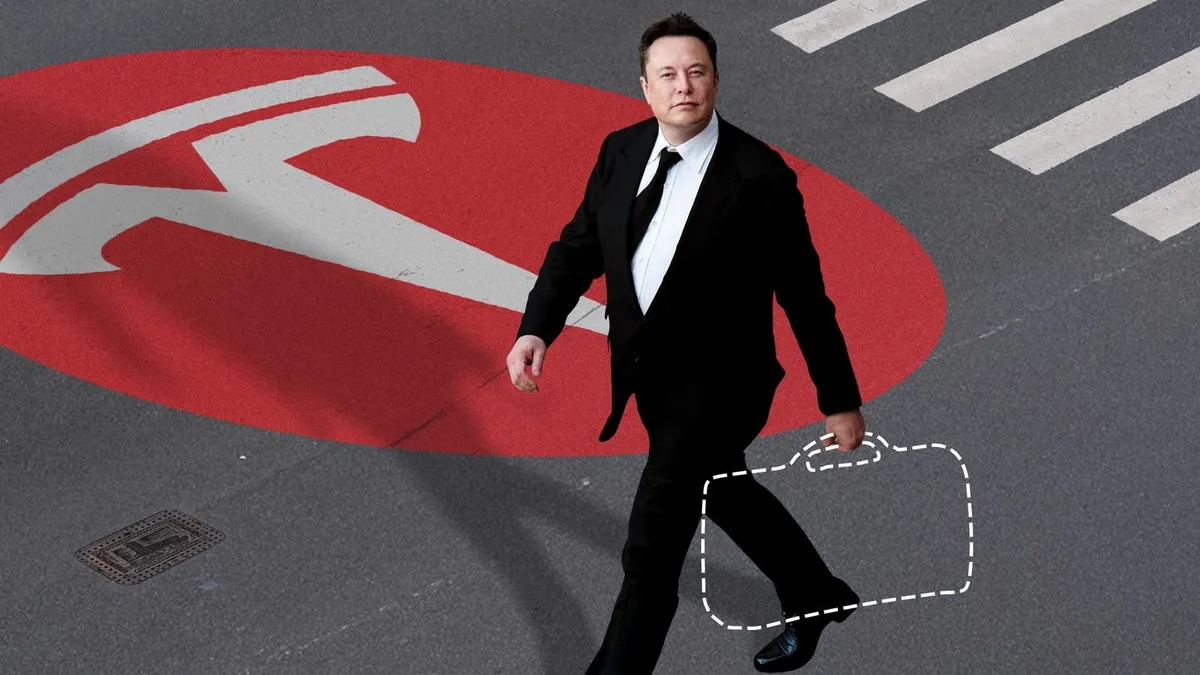
In a significant shift, Elon Musk is reducing his involvement with DOGE, the cryptocurrency that has stirred protests and vandalism at Tesla stores. This decision comes as the electric vehicle (EV) manufacturer grapples with a pressing need for a hit product, with no innovative releases on the horizon. The company’s thriving battery division, which had been a bright spot in the first quarter, is now facing challenges due to Trump’s tariffs on imported goods. Recently, Tesla reported its worst quarterly results in four years, with sales declining by 9% and income plummeting by 71%, largely due to a 20% drop in automotive revenues.
Amidst this troubling landscape, Tesla chose not to provide sales targets for the remainder of the year, a decision influenced by ongoing tariffs and market uncertainties. Interestingly, despite the grim financial report, Tesla's stock surged by 9% since Tuesday. Investors were buoyed by Musk's announcement that he plans to return to his role at Tesla in a more dedicated capacity, although he will continue to juggle responsibilities at SpaceX, xAI, and Neuralink.
However, this return may not be the panacea investors hope for. The challenges facing Tesla have intensified since Musk joined the Trump Administration as a special government employee. These challenges include declining profit margins, increasing competition, and a damaged brand image, which show no signs of abating, even if Musk resumes a more active CEO role.
Moreover, it appears that Musk has exhausted his ideas for revitalizing the company, fixating instead on an uncertain future centered around robotaxis and humanoid robots. Currently, Tesla's profitability relies heavily on the sale of cars and battery storage systems, both of which are under threat. The company lacks a successor to its highly successful models, the Model Y and Model 3, with the much-anticipated Cybertruck facing criticism for being one of the most significant flops in automotive history.
The looming tariffs from President Trump are expected to adversely affect Tesla’s automotive sales across the board. A particularly severe 145% tariff on imported Chinese battery cells threatens to cripple the company’s battery pack business, which had been one of its few bright spots last quarter. During the earnings call on April 22, Musk attempted to downplay these issues, stating, “We’re not on the ragged edge of death, not even close. There are some challenges, and I expect that … there will probably be some unexpected bumps this year.”
Experts suggest that the issues Tesla faces are not merely about product performance but are deeply intertwined with Musk’s public persona. Sue Benson, the CEO of The Behaviours Agency, argues, “It’s too late to separate man and brand. And in the meantime, it’s lost its EV advantage.” This sentiment is echoed by recent polls indicating that a significant portion of the public disapproves of Musk’s actions, including his involvement with DOGE. A survey by YouGov/Yahoo News revealed that 67% of Americans would not consider purchasing or leasing a Tesla, with many citing Musk as the primary reason.
As Tesla battles declining EV sales, which dropped 13% in the first quarter, its automotive revenue fell by 20%. The company’s profitability for the quarter was largely supported by $409 million in regulatory credits, which are provided by other automakers to comply with pollution regulations. If not for the $595 million in credits sold, Tesla would have reported a net loss.
Instead of introducing new models to invigorate sales, Tesla plans to refresh existing models like the Model Y and Model 3. However, industry analysts criticize this approach, noting that significant styling changes are crucial for attracting buyers. Glenn Mercer from GM Automotive remarked, “Just leaving these models in the market forever, with no significant sheet metal changes, means they are – to overstate things – zombies.”
The competitive landscape is rapidly changing, with growing pressure from established automakers and emerging Chinese manufacturers like BYD. Tesla’s market share of EV sales has plummeted to 43% in the first quarter, down from 75% just three years ago. Once a pioneer in the EV space, Tesla now faces steep competition as rivals launch newer models that capture consumer interest.
As Tesla navigates through these uncertain times, investors and analysts alike are looking for Musk to prioritize the development of new products rather than continuing to focus on ambitious but unproven concepts. Critics argue that Tesla’s future success hinges on its ability to innovate effectively while mitigating the impacts of external pressures such as tariffs. As the EV market continues to evolve, the road ahead for Tesla remains fraught with challenges that demand immediate attention and strategic action.